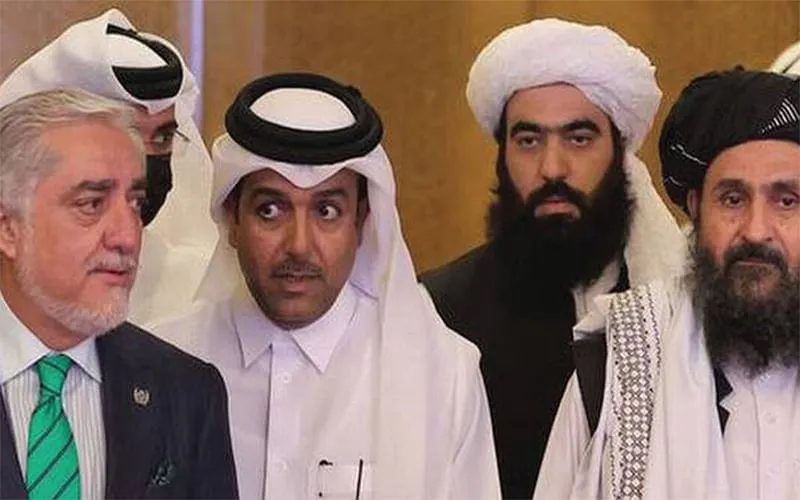US President Joe Biden has emphatically asserted on more than one occasion that his country did not undertake its Afghanistan ‘mission’ to do nation building. It did so to combat terrorism. The record of US endeavours in Afghanistan does not bear this out. There is enough evidence to show that the US attempted to helpin nation building over the twenty years of its Afghanistan enterprise even if its essential motivation was to respond to Al-Qaeda’s 9/11 attack.
The organisation’s leadership was based in Afghanistan which was then under the Taliban regime, led by Mullah Omar. The US asked it to hand over Al-Qaeda leaders including Osama bin Ladin. It refused to do so. Consequently, the US and its NATO allies were left with no alternative but to attack Afghanistan to overthrow the Taliban regime. While the Taliban was attacked with great military force and its cadres forced to flee Afghanistan and take refuge across the Durand Line the US’s principal target was always Al-Qaeda. In reality the Taliban was, at that stage, a subsidiary factor in the US mission. It was only from 2003 when the Taliban began to attack US forces in Afghanistan that the group became a deliberate and the main target.
To substantiate his point that the US did not intend to undertake nation building in Afghanistan Biden has also relied on the principal elements of the deal which the US-Taliban agreements of February 2020. This deal was worked out during the administration of his predecessor Donald Trump. Its main elements were two. One, that the Taliban would not allow Afghan territory to be used by global terrorist groups to target the US, and, two, in return US forces, and those of NATO, would withdraw from Afghanistan. These two points were undeniably the core of the deal but this does not detract from US and also European attempts at nation building in Afghanistan.
The dramatic developments of the past few weeks in Afghanistan show that nation building cannot be imposed from outside a country. Its evolution has to be based on the authentic indigenous endeavours of its people. Foreign ideas, values, forms and systems cannot be suddenly grafted on traditional societies in the hope that they will take immediate root and will bring about large-scale attitudinal changes which will pave the way for fundamental and comprehensive national transformations.
This does not imply that new and progressive ideas and values cannot come from outside and influence a people. That has happened all through history but that influence has to be through the medium of persons within a country’s society and polity who are rooted in the soil and gain their people’s trust and confidence. It can certainly not be thrust from outside through the medium of persons who are perceived to have no abiding stakes, birds of passage who flee when the going gets rough. This has been illustrated in the manner in which former Afghan President Ashraf Ghani fled the country.
The crucial elements in nation building are therefore indigenous effort and the role of a leadership that is seen by a people as deeply rooted in the soil. These factors have been overlooked at least in some peace building efforts that have been undertaken in post conflict situations after the Second World War. Often leaders who have little connect with the people are put in office for they are perceived to be progressive and aligned to one or the other major power or are popular with the United Nation’s bureaucracy. The true popularity of such leaders is never tested for often even elections that are undertaken in post conflict countries are manipulated in favour of persons who are trusted by the concerned major power and the UN bureaucracy.
All this is vastly different from a true if continuing experience of nation building as witnessed in India over a long period. The Indian response to British colonialism represented in the renaissance and the national movement were authentic Indian processes. The leaders earlier of the renaissance and later of the national movement had absorbed the values that had emanated from the European enlightenment of the 18th century but they were rooted in Indian soil and tradition. They carried conviction with the people when they urged them to abandon regressive social attitudes and look to the world with fresh eyes. The values of the Indian Republic which are embedded in the constitution represented a departure from many past social and political traditions. The essential grounding of the constitution is in the abiding and core belief of equality of all human beings. This in itself marks a radical departure from hierarchical social structures that were sanctified by many past traditions and which were also emphasised during British colonial rule.
The process of nation building in India was slow and, in many cases, painful; it is never easy for individuals and groups to abandon ideas that have continued for centuries. But the leaders who urged such changes were trusted and hence, what they preached was accepted howsoever gradually. Thus, change occurred organically. It was never at an even pace and it was seldom without opposition but it was accepted for it was not thought to be imposed from outside. The social and political leaders were also not birds of passage with one foot abroad. They were looked upon as the peoples partners in good times and bad.
That is how nations are built and transformed not by attempts at imposing leaders as Ashraf Ghani who flee when needed most.







